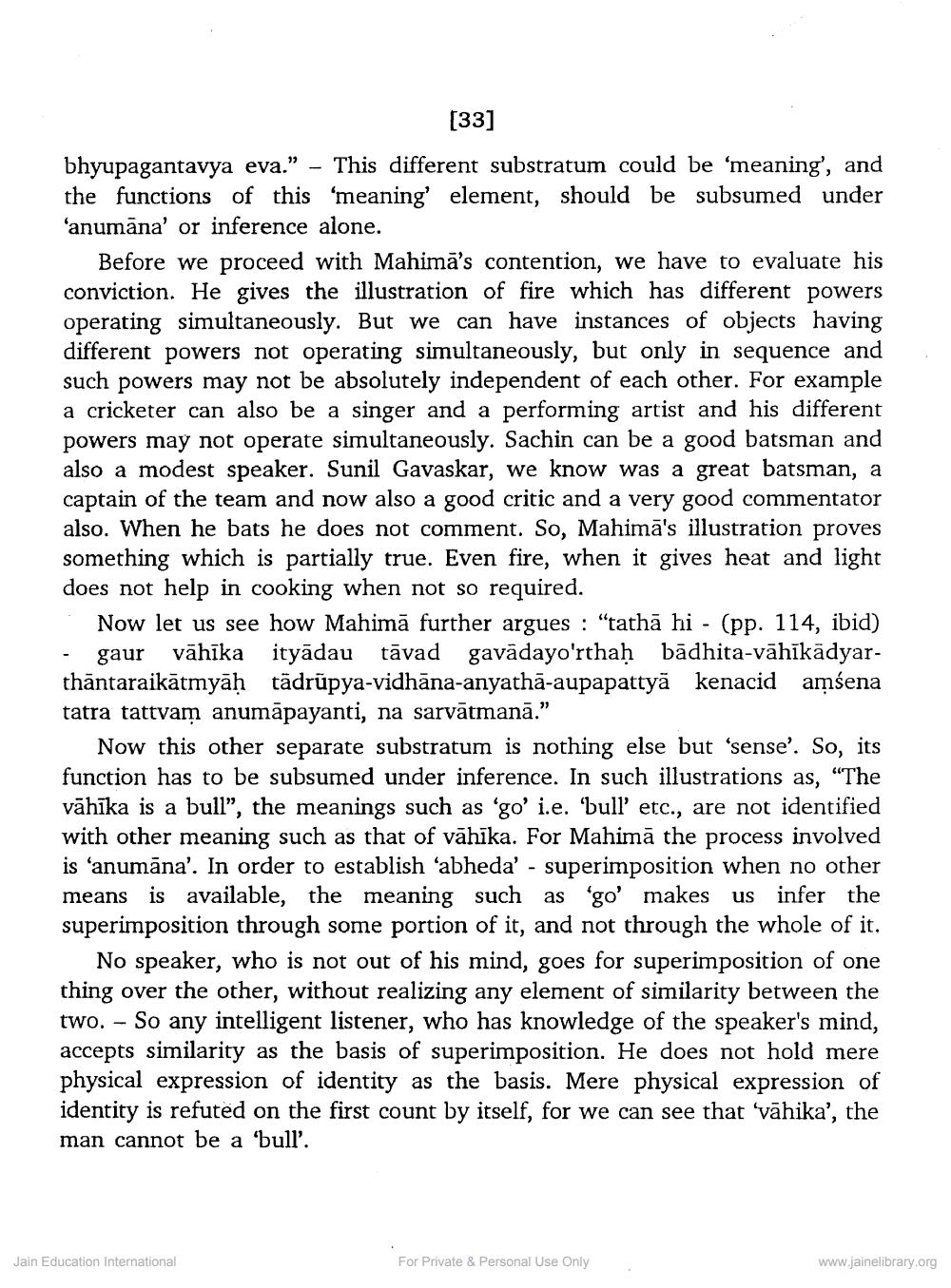________________
[33]
bhyupagantavya eva." - This different substratum could be 'meaning', and the functions of this 'meaning' element, should be subsumed under 'anumāna' or inference alone.
Before we proceed with Mahimā's contention, we have to evaluate his conviction. He gives the illustration of fire which has different powers operating simultaneously. But we can have instances of objects having different powers not operating simultaneously, but only in sequence and such powers may not be absolutely independent of each other. For example a cricketer can also be a singer and a performing artist and his different powers may not operate simultaneously. Sachin can be a good batsman and also a modest speaker. Sunil Gavaskar, we know was a great batsman, a captain of the team and now also a good critic and a very good commentator also. When he bats he does not comment. So, Mahima's illustration proves something which is partially true. Even fire, when it gives heat and light does not help in cooking when not so required.
Now let us see how Mahimā further argues : "tathā hi - (pp. 114, ibid) - gaur vāhīka ityādau tāvad gavādayo'rthaḥ bādhita-vāhīkādyarthāntaraikātmyāḥ tādrūpya-vidhāna-anyathā-aupapattyä kenacid amsena tatra tattvam anumāpayanti, na sarvātmanā."
Now this other separate substratum is nothing else but 'sense'. So, its function has to be subsumed under inference. In such illustrations as, “The vāhīka is a bull”, the meanings such as 'go' i.e. 'bull' etc., are not identified with other meaning such as that of vāhīka. For Mahimā the process involved is 'anumāna'. In order to establish abheda' - superimposition when no other means is available, the meaning such as 'go' makes us infer the superimposition through some portion of it, and not through the whole of it.
No speaker, who is not out of his mind, goes for superimposition of one thing over the other, without realizing any element of similarity between the two. - So any intelligent listener, who has knowledge of the speaker's mind, accepts similarity as the basis of superimposition. He does not hold mere physical expression of identity as the basis. Mere physical expression of identity is refuted on the first count by itself, for we can see that 'vāhika', the man cannot be a 'bull'.
Jain Education International
For Private & Personal Use Only
www.jainelibrary.org




